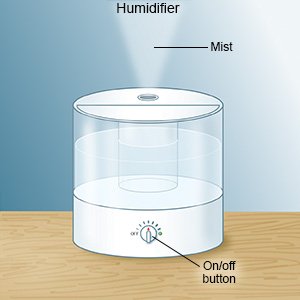Pharyngitis
Medically reviewed by Drugs.com. Last updated on Jun 5, 2024.
What is pharyngitis?
Pharyngitis, or sore throat, is inflammation of the tissues and structures in your pharynx (throat). Pharyngitis is most often caused by bacteria or a virus. Other causes include smoking, allergies, or acid reflux.
What are the signs and symptoms of pharyngitis?
Signs and symptoms depend on the cause of your pharyngitis. You may have any of the following:
- Sore throat or pain when you swallow
- Fever, chills, and body aches
- Hoarse or raspy voice
- Cough, runny or stuffy nose, itchy or watery eyes
- Headache
- Upset stomach and loss of appetite
- Whitish-yellow patches on the back of the throat
- Tender, swollen lumps on the sides of the neck
How is pharyngitis diagnosed?
Tell your healthcare provider about your symptoms and when they started. Your provider may look inside your throat and feel your neck. You may also need the following tests:
- A throat culture may show which germ is causing your sore throat. A cotton swab is rubbed against the back of your throat.
- Blood tests may be used to show if another medical condition is causing your sore throat.
How is pharyngitis treated?
Viral pharyngitis will go away on its own without treatment. Your sore throat should start to feel better in 3 to 5 days. You may need medicines to decrease pain and swelling or to treat a bacterial infection.
How can I manage my symptoms?
- Gargle salt water. Mix ¼ teaspoon salt in an 8 ounce glass of warm water and gargle. Do not swallow. Salt water may help decrease swelling in your throat.
- Drink liquids as directed. You may need to drink more liquids than usual. Liquids may help soothe your throat and prevent dehydration. Ask how much liquid to drink each day and which liquids are best for you.
- Use a cool mist humidifier. This will add moisture to the air and help decrease your cough.

- Soothe your throat. Cough drops, ice, soft foods, or popsicles may help decrease throat pain.
How can I prevent the spread of pharyngitis?
Cover your mouth and nose when you cough or sneeze. Do not share food or drinks. Wash your hands often. Use soap and water. If soap and water are unavailable, use an alcohol-based hand sanitizer.
 |
Call your local emergency number (911 in the US) if:
- You have trouble breathing or swallowing because your throat is swollen.
When should I seek immediate care?
- You are drooling because it hurts too much to swallow.
- Your fever is higher than 102˚F (39˚C) or lasts longer than 3 days.
- You are confused.
- You taste blood.
When should I call my doctor?
- Your throat pain gets worse.
- You have a painful lump in your throat that does not go away after 5 days.
- Your symptoms do not improve after 5 days.
- You have questions or concerns about your condition or care.
Care Agreement
You have the right to help plan your care. Learn about your health condition and how it may be treated. Discuss treatment options with your healthcare providers to decide what care you want to receive. You always have the right to refuse treatment. The above information is an educational aid only. It is not intended as medical advice for individual conditions or treatments. Talk to your doctor, nurse or pharmacist before following any medical regimen to see if it is safe and effective for you.© Copyright Merative 2024 Information is for End User's use only and may not be sold, redistributed or otherwise used for commercial purposes.
Learn more about Pharyngitis
Treatment options
Care guides
Further information
Always consult your healthcare provider to ensure the information displayed on this page applies to your personal circumstances.
